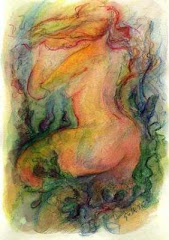 This week marks the 40th anniversary of the assassination of the Rev. Dr. Martin Luther King, Jr. He was standing on the balcony outside of his room at the Lorraine Motel in Memphis, Tennessee (shown at right), and in a heartbeat one of the most profound voices of a generation -- indeed of the 20th century -- was gone. King was cut down the day after he gave a prophetic address that came to be known as his "I've Been to the Mountaintop" speech.
This week marks the 40th anniversary of the assassination of the Rev. Dr. Martin Luther King, Jr. He was standing on the balcony outside of his room at the Lorraine Motel in Memphis, Tennessee (shown at right), and in a heartbeat one of the most profound voices of a generation -- indeed of the 20th century -- was gone. King was cut down the day after he gave a prophetic address that came to be known as his "I've Been to the Mountaintop" speech.
"...And then I got into Memphis. And some began to say the threats, or talk about the threats that were out. What would happen to me from some of our sick white brothers? Well, I don't know what will happen now. We've got some difficult days ahead. But it really doesn't matter with me now, because I've been to the mountaintop.
And I don't mind. Like anybody, I would like to live a long life. Longevity has its place. But I'm not concerned about that now. I just want to do God's will. And He's allowed me to go up to the mountain. And I've looked over. And I've seen the Promised Land. I may not get there with you. But I want you to know tonight, that we, as a people, will get to the promised land!
And so I'm happy, tonight. I'm not worried about anything. I'm not fearing any man! Mine eyes have seen the glory of the coming of the Lord!!"
Riots and fires, death and destruction followed in the wake of King's murder, in major cities all across the country. To this day, many urban areas still bear the scars -- visually and psychologically. But one city notably escaped that fate -- thanks perhaps in part, history tells us, to what was supposed to have been a routine campaign stop for a junior senator from New York who happened to be running for president in 1968. Somebody who knew better than anyone what it was like to watch a dream fall victim to a coward's gun, and knew the necessity of carrying the torch forward.
The nation had lost President John F. Kennedy five years earlier, and the dreams of Camelot with him. And that day in Indianapolis, JFK's little brother, Bobby -- who to many had become a powerful and moving prophet of change in his own right -- together with a very well organized black community in the city, helped to bring some desperately needed sanity to a nation gone temporarily mad with grief and fear.
The police chief told RFK not to make the campaign stop, but Bobby went anyway -- and his police escort left him when he entered the largely black neighborhood. And when he found out the crowd gathered to hear him had not been told the horrible news, he made a short speech announcing the tragedy himself -- standing in the back of a flatbed truck. His extemporaneous remarks saying so simply what needed to be said.
"...Martin Luther King dedicated his life to love and to justice between fellow human beings. He died in the cause of that effort. In this difficult day, in this difficult time for the United States, it's perhaps well to ask what kind of a nation we are and what direction we want to move in. For those of you who are black -- considering the evidence evidently is that there were white people who were responsible -- you can be filled with bitterness, and with hatred, and a desire for revenge.
We can move in that direction as a country, in greater polarization -- black people amongst blacks, and white amongst whites, filled with hatred toward one another. Or we can make an effort, as Martin Luther King did, to understand, and to comprehend, and replace that violence, that stain of bloodshed that has spread across our land, with an effort to understand, compassion, and love.
For those of you who are black and are tempted to fill with -- be filled with hatred and mistrust of the injustice of such an act, against all white people, I would only say that I can also feel in my own heart the same kind of feeling. I had a member of my family killed, but he was killed by a white man. ...
But the vast majority of white people and the vast majority of black people in this country want to live together, want to improve the quality of our life, and want justice for all human beings that abide in our land.
And let's dedicate ourselves to what the Greeks wrote so many years ago: to tame the savageness of man and make gentle the life of this world. Let us dedicate ourselves to that, and say a prayer for our country and for our people...."
Just two months later, Bobby Kennedy was gunned down in the Ambassador Hotel in Los Angeles, an assassin's bullet once again extinguishing the best and brightest of a generation. I was less than a year old -- I have no real memory of these events. But to have two such magnificent voices snuffed out so summarily, so closely together -- I cannot imagine how it must have felt, the chaos. Even today, the "what-might-have-beens" play through my own mind -- where would King's path have taken him? Would his increasing outspokenness about the Vietnam War -- a war that was disproportionately killing black soldiers -- have brought a halt to hostilities that much sooner? What other civil rights victories were at hand for this man who could use both reason and faith to inspire so many?
And what of Bobby Kennedy? Just think if he had been elected president instead of Richard Nixon, and all that would have meant -- for peace, civil rights, women's rights. Watergate would still be just a hotel in Washington, and Jerry Ford would likely have gone done in history as one of the most congenial House Speakers in history.
While I was not old enough to have experienced the lives of these men first hand, history can still teach me well enough to leave a sense of loss and regret. And my generation has our own "what ifs" to deal with as well, albeit perhaps of a slightly different sort. I wonder where we'd be if my hero, Sen. Paul Wellstone (D-MN) and his amazing wife Sheila, as well as their daughter and key aides, had not died in a plane crash six years ago. Certainly we would have been spared the ridiculousness of Sen. Norm Coleman (R-MN) making a mockery of that seat -- which Hubert Humphrey also held. But in the Bush years, having a man like Wellstone speak truth to power -- not just to the shameless Republicans but to the spineless Democrats as well -- may have made a difference in any number of debates. I have a signed letter from Paul and Sheila on the wall in my office, and it reminds me everyday about what's important.
And then there's the what-might-have-been's of the 2000 election. If the Supreme Court had got it right. If the butterfly ballot hadn't ever been printed. If Pat Buchanan or Ralph Nader hadn't run for president that year. If Gore had run a better campaign, and if the Democrats had fought the election in Congress -- as was their constitutional right. Who knows -- imagine eight years of a President Gore versus the two disastrous terms under Bush and his chicken hawk pals.
But in the end, what-might-have-beens don't get us very far, and no one ever disagrees on what might have been anyway. But I do know this: anniversaries like the one we observed this week make me want to work even harder to avoid other circumstances that carry harsh regrets, bitter disappointment and what-might-have-beens. The 2008 presidential election is one such circumstance that is in the forefront of my mind these days. And the legacies of men like King and Kennedy should inspire and unite us. We Democrats need to get our act together, settle on a candidate, and stand up to John McCain and his swift boat cronies. I refuse to be spending Nov. 5 on useless what-might-have-beens. No, not again, my friends. I can't bear it, and the country can't afford it.

























No comments:
Post a Comment